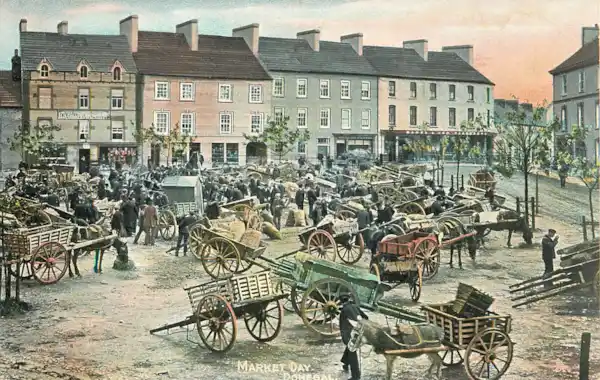In this expert blog, David Ryan looks at how to use local archives and libraries for Irish family history, allowing you to add colour to the basic facts obtained from civil records.
An often overlooked source in our search for Irish ancestors is the treasure trove that is local repositories and the records they contain. These include:
- street directories
- local valuations
- cemetery registers
- maps
- school rolls
- workhouse records
- personal family archives
How to find local sources for Irish family history
Throughout Ireland there is a network of local libraries and archives. Most Irish counties on both sides of the border have their own dedicated county library and archive which are run by local councils. Larger cities such as Cork and Dublin have more than one library and archives.
When researching ancestors in a specific county in Ireland, it is worth checking to see if the county library and archives have any online resources which may be of help in your search. The head library for each county or city will likely contain books on local history, old newspapers, reference works and journals published by local historical societies, etc.
Irish street and trade directories
Street and trade directories of the principal cities and towns in Ireland are invaluable sources of information for researching family history. Earlier directories often concentrated primarily on the larger businesses and institutions. As time went on, the information contained became more detailed, with adverts for individual businesses, images, and descriptions of various trades.
Irish workhouse records
The workhouse looms large in Irish history, particularly in relation to the Great Famine and its immediate aftermath. Workhouses were introduced to Ireland in the early 1840s and continued to function up until the 1920s. There were 163 workhouses in total throughout Ireland. Along with being a place of last resort for those who had become destitute, workhouses were also a place for assisted emigration. Surviving workhouse registers are often kept locally. Unfortunately, not all records for every workhouse survive. For Cork, minute books (recording the proceedings of Board of Guardians’ meetings), are the largest series of poor law archives that have survived; workhouse registers, financial accounts and correspondence and several other series also survive for some areas.
To discover which poor law union your Irish ancestors may have resided in, you can check the map of Irish poor law unions at the The Workhouse website.
Planning an ancestral trip to Ireland?
Local archives and libraries are an essential source for family history research. If you are planning a trip to Ireland to research your ancestry, then they should be high on your list of places to visit.
Aside from these public-run archives and libraries, there are also other special archives run by Irish religious orders or specific businesses, such as breweries. The Archives and Records Association of Ireland (ARA) has a useful listing of local and specialist archives throughout Ireland and Northern Ireland. They might just help you get through some of those stubborn brick walls.
David Ryan’s interest in family history came about through a love of history but also just from growing up with listening to his parents and grandparents regularly discussing their extended family. He wanted to understand more about who they were and where his family came from.








